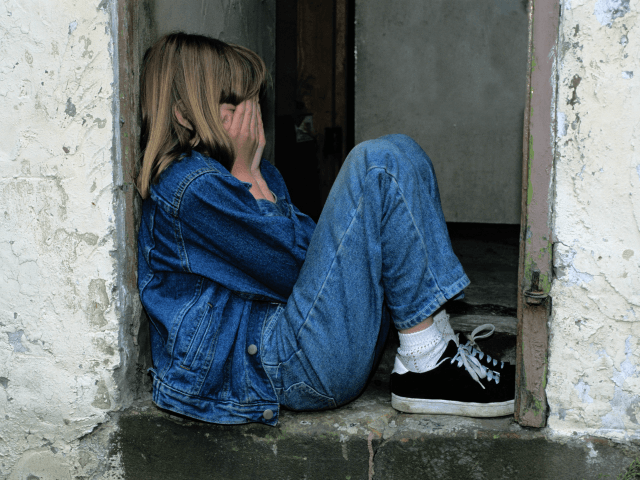Grooming gangs in the Black Country of the English West Midlands have been revealed to have targetted a nine-year-old girl.
One of Britain’s youngest victims of child sexual exploitation by grooming gangs was listed in the latest statistics released by the Sandwell Council, which said that 36 people, aged between nine and 22, were at risk of abuse by the vicious gangs in 2020.
Two-thirds of the victims were listed as being “white British or white other”, compared to nine of mixed race, and one from Pakistani heritage, the BirminghamLive reported.
This falls in line with a 2017 report from the counter-extremism think tank Quilliam which stated that grooming gangs specifically target young white girls as they are seen as “easy targets” compared to girls from their own communities, whom they felt should be “protected”.
The report found that overall 84 per cent of grooming crimes were committed by Muslim men of South Asian backgrounds.
A police report from 2012 found that a grooming gang was operating in the Black Country — named for the region’s traditional heavy industry, being one of the crucibles of the Industrial Revolution — area of Walsall, which is now home to a large Pakistani population.
“Clusters of offenders have been found in Walsall and on Birmingham East which also have the highest populations of Pakistani communities in the West Midlands,” the police report said.
“The close proximity of suspect addresses in […] Walsall suggests offenders are collaborating in the identification, grooming and subsequent abuse of vulnerable females.”
“We accept that there have been failings in some historical cases in the past, and in 2012 we expanded our Public Protection Unit to improve our service to victims of abuse.”
Grooming Gang Rape Victim: Mohammed Ali Sultan and Shahmeel Khan Turned Me into an Inhuman ‘Sex Thing’ https://t.co/MPxOho8zXw
— Breitbart London (@BreitbartLondon) September 9, 2020
In March of this year, an alleged grooming gang victim in Walsall said that the police had ignored her pleas for help, with officers reportedly claiming that the child was “prostituting herself“.
“I was 12 or 13 when I went with my mum to the police to report the first rape. But a female police officer accused me of lying and that just broke me. I went off the rails after that,” the alleged victim said.
The mother of the alleged victim said: “She was always going missing after that, we’d have to pick her up at the police station after she was found by them, sometimes at hotels. The police asked me if I knew what was happening and I said if I did I’d have an idea how to deal with it, I had no idea.
“And they said, ‘Well, we think your daughter is prostituting herself’. I could have dropped to my knees at that point because we were talking about a young girl.”
In response to the latest revelations, a former police detective turned grooming gang whistleblower, Maggie Oliver questioned on social media: “Why is it police statements always say there ‘may have been mistakes in the past’?”
“I can tell you from our daily work in The Foundation these failures are still very much happening right now and I ask myself, how many more years before we get this right?” Oliver added.
Rape Gang Member Walking Streets of Rochdale Six Years After He was Supposed to Be Deported https://t.co/ms3CVhocBg
— Breitbart London (@BreitbartLondon) April 5, 2021
Earlier this month, the former detective said that rape gangs are still being allowed to operate in the country due to “institutional cowardice“.
Two infamous groomers, Adil Khan and Qari Abdul Rauf, were revealed in April to be roaming the very same streets where they preyed upon girls as young as 12 — six years after the Conservative government pledged to deport them to their native Pakistan.
Oliver said that the victims of the heinous crimes “were let down by the state when the grooming first occurred, and they are still being let down by officialdom’s refusal to uphold the law, keep them informed or respect their human rights.”
“In sharp contrast, Abdul Rauf’s so-called human rights have been revered by the system — just as he and his other gang members have been lavished with expensive legal aid,” she added.
UK: Police Told to Look for ‘Other Ethnicities’ as ‘Asian’ Grooming Gang Preyed on Girls https://t.co/cvKGT9iFGj
— Breitbart London (@BreitbartLondon) January 15, 2020
Follow Kurt Zindulka on Twitter here @KurtZindulka

COMMENTS
Please let us know if you're having issues with commenting.